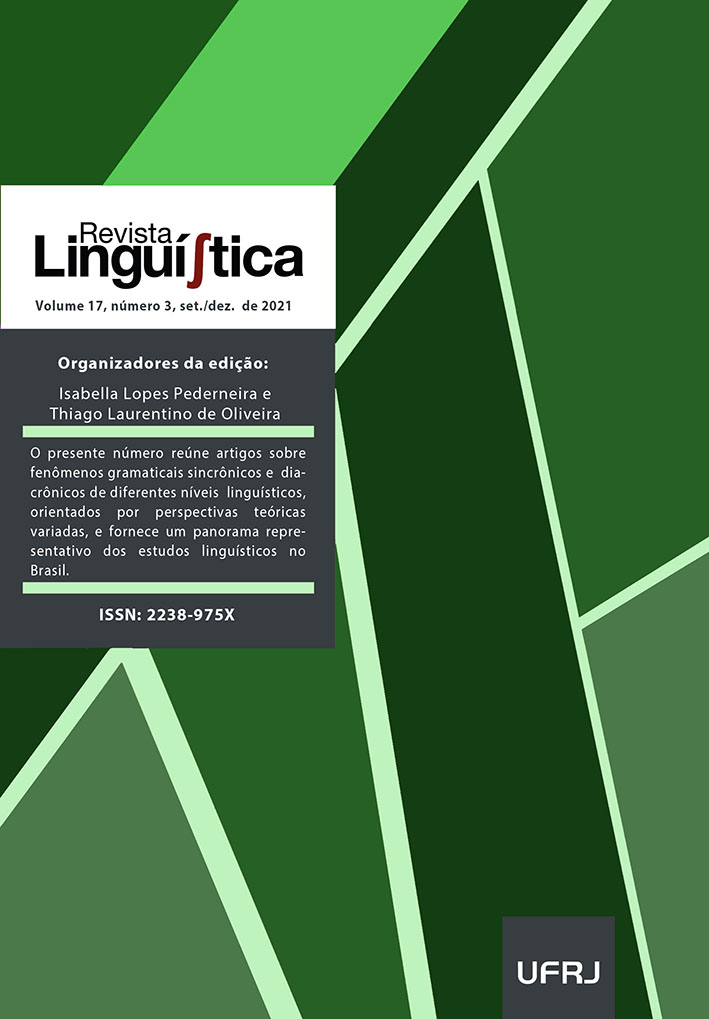The argumental structure and polysemy in nominalizations
DOI:
https://doi.org/10.31513/linguistica.2021.v17n3a49646Keywords:
nominalizations, syntax-semantic interface, generative grammar, argument structure. word formation.Abstract
This paper analyzes deverbal nominalizations in Brazilian Portuguese (BP), focusing the relationship between the polysemy present in these items and their syntactic structure. The theoretical basis of this study is the Exoskeletal Model (BORER, H. 2005a, 2005b, 2013a), a theoretical approach to Generative Grammar that analyzes word formation from a derivational point of view. That is, words are formed by the computational system and present internal syntactic structure, as well as phrases and sentences. The research methodology is the formal study of the syntactic-semantic behavior of the deverbal nominalizations, having as object of analysis nominals formed by the suffixes –ção and -mento in BP. The analyzed data were selected from Google and from the corpora corpus of the Portuguese NOW and Brazilian corpus. In some cases, introspection was also used. The hypothesis of this research is that the functional layers in the syntactic structure of the deverbal nominals directly influence its reading, according to the different constructionist proposals of the Generative Grammar. The results of the analyzes demonstrate that the event reading in these nominals results from the inheritance of the event structure of its verbal counterpart, having in its internal structure all the event-forming functional layers. Nouns with result reading, in turn, present only the aspectual and verbal layers in their structure. In nominals with entity reading, the nominalizer is projected above the root and typifies it as a verb. In this way, the root gains a verbal status, but it does not present an argument structure.Downloads
Published
Issue
Section
License
Authors who publish in the Revista Linguí∫tica agree with the following terms:
The authors maintain their rights, ceding to the journal the right to first publication of the article, simultaneously submitted to a Creative Commons license permitting the sharing with third-parties of published content as long as it mentions the author and its first publication in the Revista Linguí∫tica.
Authors may enter into additional agreements for the non-exclusive distribution of their published work (for example, posting in online institutional or non-profit repositories, or book chapters) so long as they acknowledge its initial publication in the Revista Linguí∫tica.

The journal Revista Linguí∫tica is published by the Post-Graduate program in Linguistics of UFRJ and employs a Creative Commons - Attribution-NonCommercial 4.0 International (CC-BY-NC).









